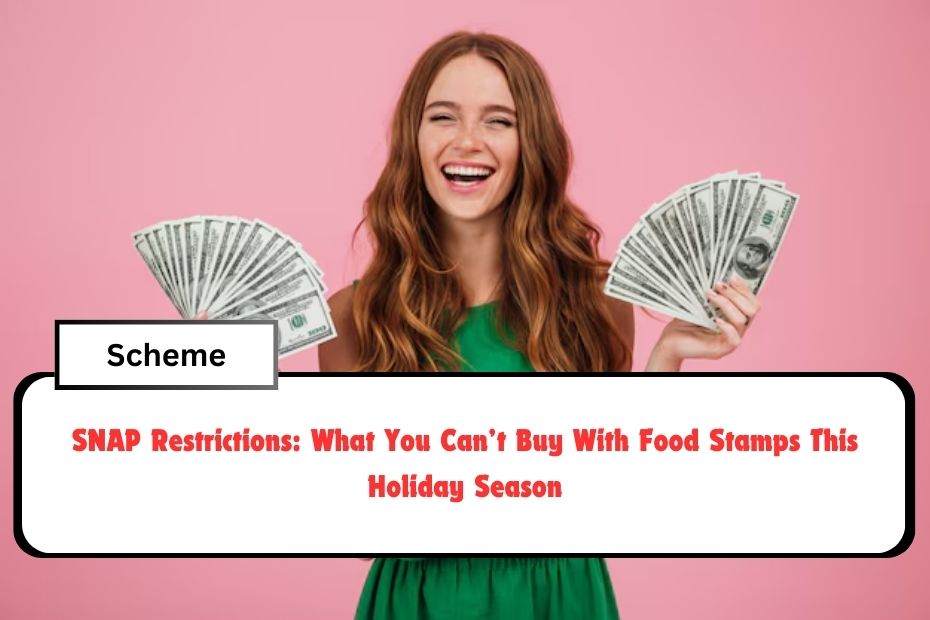The Supplemental Nutrition Assistance Program (SNAP) is a lifeline for many low-income households, helping them afford nutritious food. While SNAP ensures families have access to essential groceries, it has clear rules about what items are excluded from purchase. Understanding these restrictions is vital to make the most out of SNAP benefits and avoid any issues during transactions. This article outlines prohibited items and answers common questions about the program.
What Items Are Restricted Under SNAP?
Alcohol
SNAP benefits cannot be used to purchase alcoholic beverages, regardless of the occasion. Prohibited items include:
- Beer
- Wine
- Liquor
- Other forms of alcohol
No exceptions exist, even if a recipient claims the purchase is for a special event or emergency.
Tobacco Products
Tobacco is strictly excluded from SNAP purchases. This includes:
- Cigarettes
- Cigars
- Chewing tobacco
- Other tobacco-related products
These restrictions help ensure SNAP benefits are spent on essential nutritional items rather than harmful substances.
Medications and Supplements
Products with a “Supplement Facts” label or those classified as medications are not eligible for purchase with SNAP. Examples include:
- Vitamins
- Protein powders labeled as dietary supplements
- Over-the-counter medicines and herbal remedies
Items intended to improve general health but not classified as food are ineligible.
Non-Food Items
SNAP benefits are solely for food purchases. Non-food items cannot be bought, such as:
- Pet food
- Cleaning supplies (e.g., detergents)
- Paper products (e.g., paper towels, toilet paper)
- Hygiene products (e.g., toothpaste, shampoo)
These items, while necessary for daily life, are not covered under SNAP guidelines.
Prepared and Hot Foods
Hot foods ready for immediate consumption are not eligible. For example:
- Rotisserie chickens
- Hot deli meals prepared in-store
However, pre-cooked cold items that can be reheated at home, such as refrigerated pizza or cold chicken, are allowed. This rule ensures benefits are used for meals prepared at home, promoting cost effectiveness and nutrition.
Live Animals
Live animals cannot be purchased unless they are for immediate consumption. For example:
- Live seafood (e.g., lobsters, fish, shellfish)
Pets or livestock are not permitted purchases under SNAP. This ensures funds are used for food rather than non-essential expenditures.
Why Are These Restrictions Important?
SNAP is designed to provide essential nutrition and help households meet basic dietary needs. By restricting items like alcohol, tobacco, and non-food products, the program ensures that its limited resources are used effectively for their intended purpose.
Summary Table of Restricted Items
| Category | Examples |
|---|---|
| Alcohol | Beer, wine, liquor |
| Tobacco | Cigarettes, cigars, chewing tobacco |
| Supplements | Vitamins, protein powders, remedies |
| Non-Food Items | Pet food, paper goods, cosmetics |
| Hot Foods | Rotisserie chickens, hot deli meals |
| Live Animals | Pets, livestock (except seafood) |
Conclusion
Understanding SNAP restrictions ensures families use their benefits effectively and within the program’s guidelines. By focusing on essential groceries, SNAP recipients can make healthier choices and stretch their benefits further. For detailed information or clarification, visit the USDA Food and Nutrition Service website.
Guilderland Historical Society
FAQ’s
1. Can I buy vitamins or protein powders with SNAP benefits?
No, items labeled as dietary supplements with a “Supplement Facts” label are ineligible for SNAP.
2. Are pre-cooked foods like rotisserie chicken allowed under SNAP?
No, hot foods ready for immediate consumption cannot be purchased, but pre-cooked cold items are eligible.
3. Why can’t SNAP benefits be used for pet food?
SNAP is designed strictly for human food, ensuring benefits are used to meet household nutritional needs.

